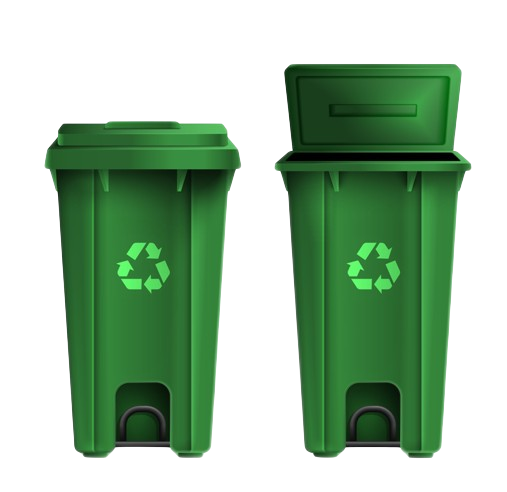
How to Choose the Right Compactor for Your Needs
Waste management is a crucial aspect of maintaining a clean and efficient environment. Choosing the right compactor for your specific needs is a key step in optimizing waste handling processes. In this comprehensive guide, we’ll delve into various aspects of waste management and trash compactors, ensuring that you make informed decisions.
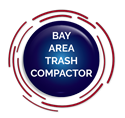 Wondering how to choose the right compactor?
Wondering how to choose the right compactor?

Connect with Bay Area Trash Compactor to discover the benefits of our cutting-edge compactors, tailored to meet your specific needs. We offer a comprehensive guide to efficient and reliable waste compaction technology.
Streamline your waste management with confidence
Understanding Your Compaction Needs
Before exploring compactor types, let’s dive into the expertise required to assess your specific compaction needs. We guide you through a comprehensive process, drawing on industry knowledge to ensure you make an informed decision.
Indoor Compactors
Indoor compactors are designed for enclosed spaces, such as commercial buildings, offices, and shopping malls. They offer a range of capacities to handle varying waste volumes and are often equipped with features like low noise emissions and odor control systems.

Corral Compactors
Corral compactors are ideal for outdoor waste management, particularly in areas with high waste volumes, such as apartment complexes, schools, and parks. They feature a large hopper that allows for easy loading of bulky items and incorporate odor-control mechanisms to maintain a pleasant environment.
Self-Contained Compactors
Self-contained compactors are fully enclosed units that combine compaction and storage capabilities. They are ideal for businesses that require secure waste disposal, such as healthcare facilities, pharmaceutical companies, and financial institutions.
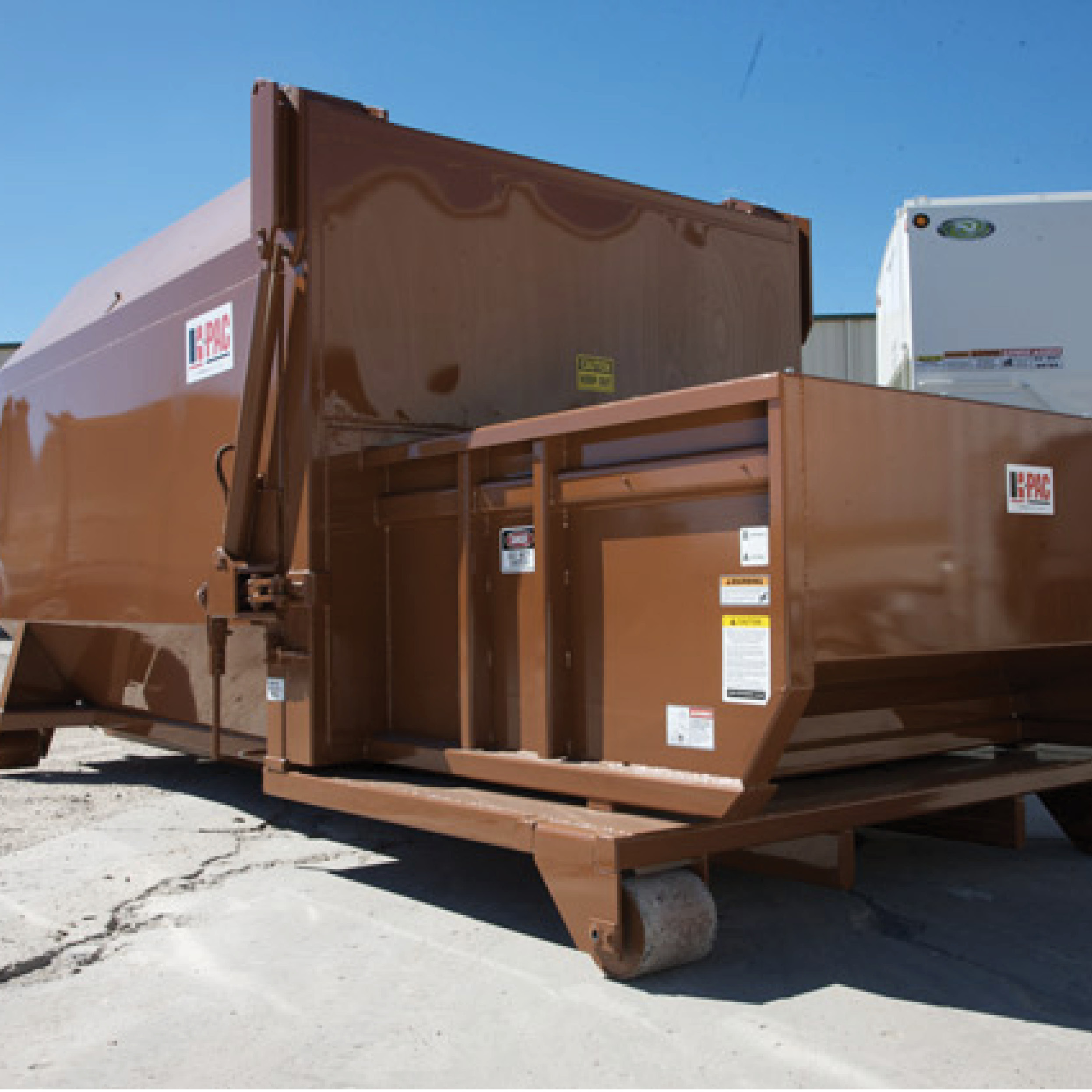
Stationary Compactors
Stationary compactors are designed for permanent installation in a designated location. They offer high compaction ratios and are often used for large-scale waste management applications, such as recycling centers and manufacturing facilities.
Solar Compactors
Solar compactors utilize solar energy to power their compaction mechanism, reducing reliance on traditional energy sources and promoting sustainability. They are often used in outdoor environments where access to grid power may be limited.
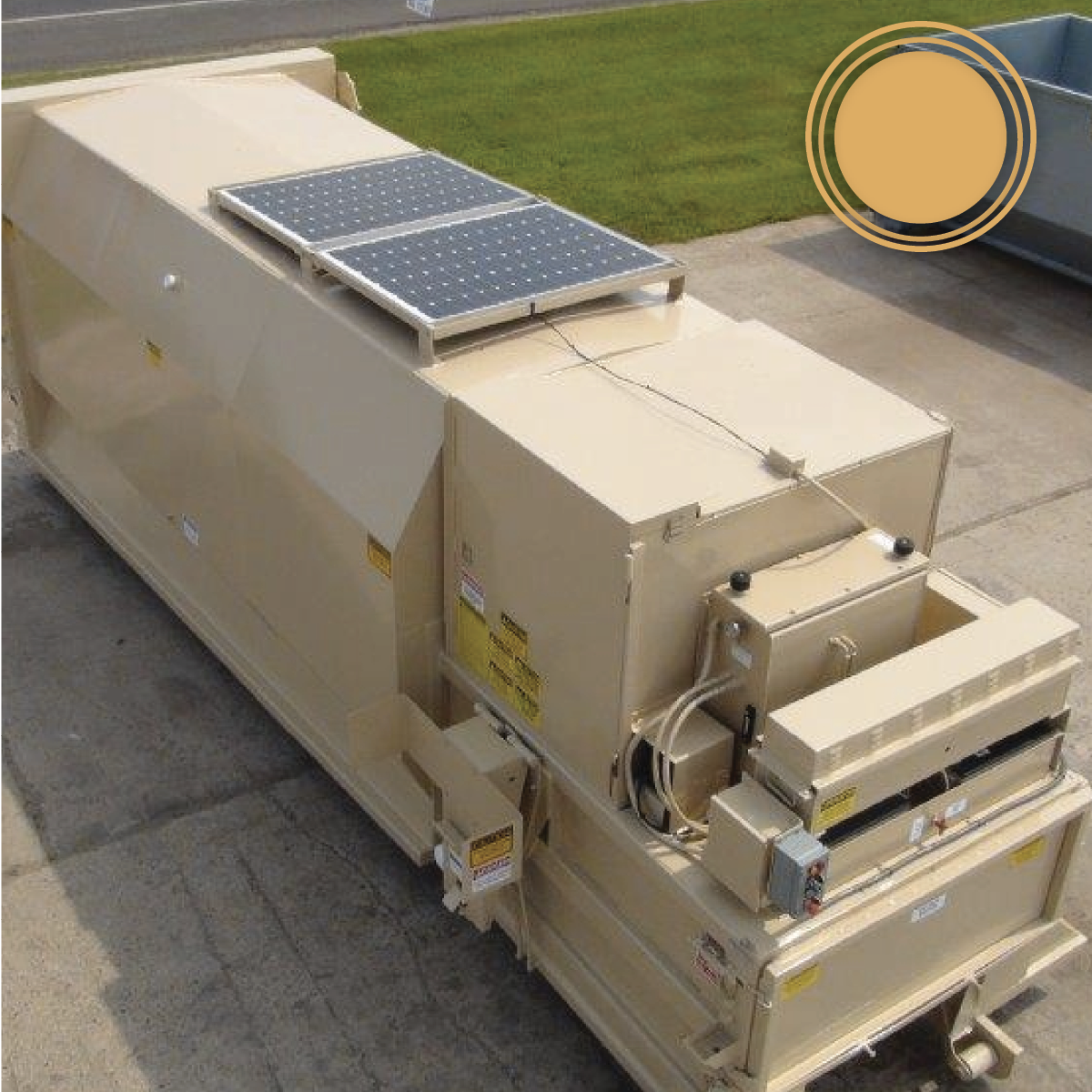
Chute-Fed Compactors
Chute-fed compactors are designed for waste disposal from upper floors of buildings. Waste is dropped through a chute into the compactor, which then compresses the material. This type of compactor is often used in apartment complexes, dormitories, and hospitals.
Outdoor Compactors
Outdoor compactors are designed to withstand the elements and are suitable for use in open-air environments. They are often used in industrial facilities, construction sites, and high-density residential areas to manage large volumes of waste.
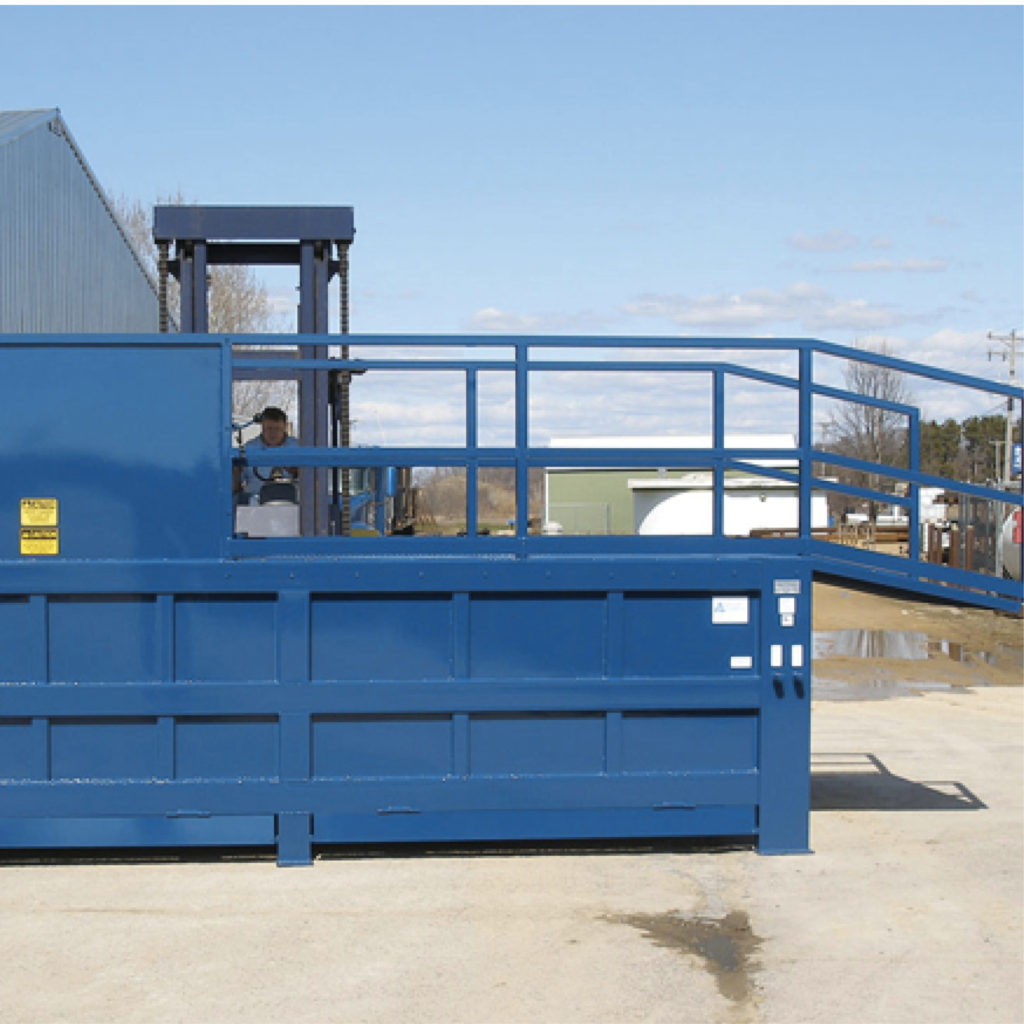
Order Compactor Bags
Compactor bags are specifically designed to line the interior of compactors, providing a clean and hygienic waste containment solution. They are available in various sizes and materials to suit different waste types and compactor models.
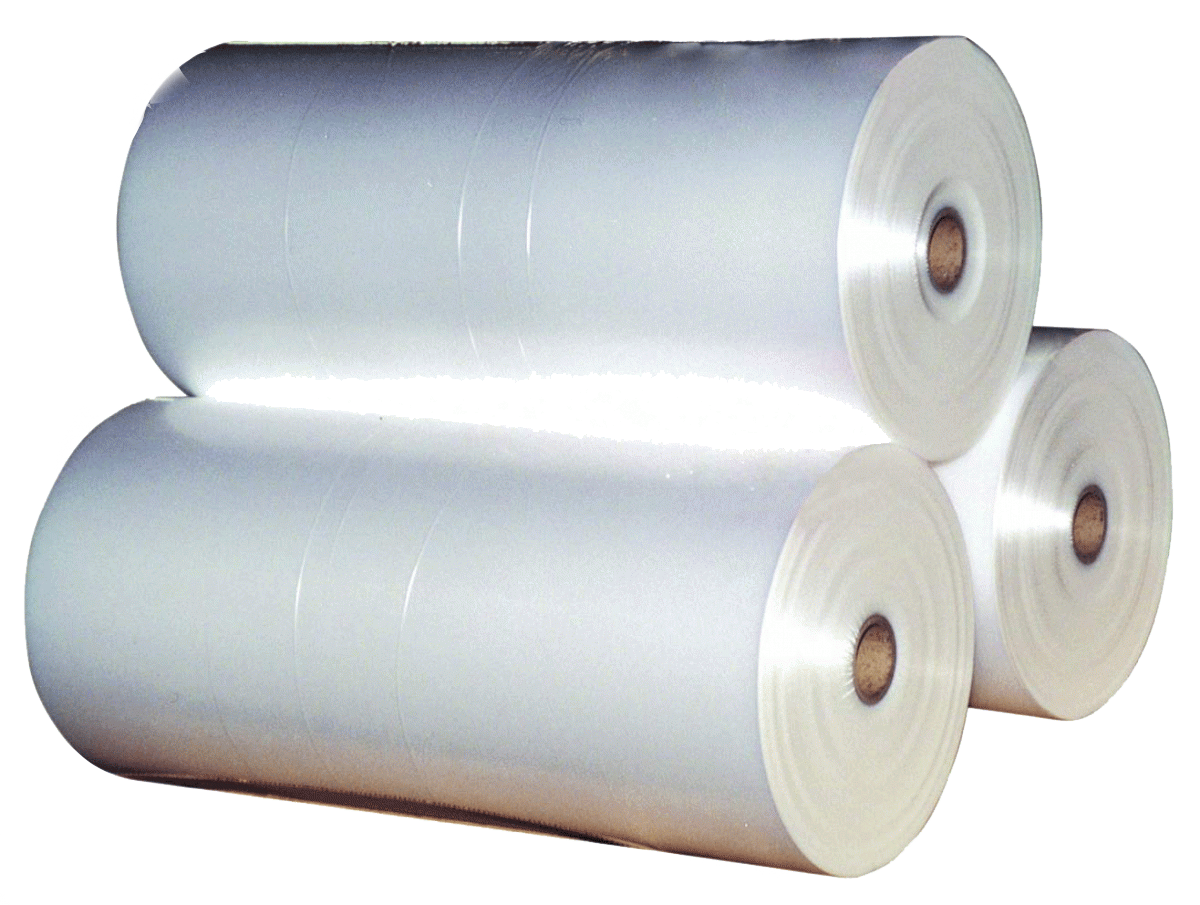
Considerations for Compactor Size and Capacity
Selecting the appropriate size and capacity for a trash compactor is pivotal in achieving efficiency and effectiveness in waste management projects. This decision requires a thorough understanding of the types of materials you intend to compact, as different materials may require different compaction force and capacities.
- Volume of waste generated: This is the most important factor to consider. You need a compactor that can handle the amount of waste your business generates on a daily or weekly basis. Consider factors like seasonal fluctuations in waste generation.
- Compaction ratio: Different compactors offer different compaction ratios. A higher compaction ratio means the compactor can compress more waste into a smaller space. This will be important if you have limited space for storing trash.
- Frequency of waste collection: If you have waste collection only a few times a week, you will need a larger compactor to store the waste until it is collected.
- Available space: Make sure you have enough space to accommodate the compactor, as well as room to maneuver around it for loading and unloading.
- Type of waste: The type of waste you will be compacting will also affect the size and capacity of the compactor you need. For example, a compactor for cardboard boxes will be different from a compactor for food waste.
Environmental and Regulatory Considerations
When choosing the size and capacity of a trash compactor, it’s essential to consider environmental and regulatory factors. This section highlights the importance of adopting responsible waste management practices that not only adhere to relevant regulations but also aim to minimize the ecological footprint of waste management activities.
- Energy consumption: Compactors use energy to operate. Consider choosing an energy-efficient model to reduce your environmental impact.
- Noise pollution: Some compactors can be quite noisy. If noise is a concern, be sure to choose a model that meets noise emission standards.
- Air emissions: The operation of a compactor can generate air emissions. Ensure the compactor meets local air quality regulations.
- Leakage prevention: Leakage of liquids from the compactor can contaminate the environment. Choose a compactor with a leak-prevention system.
- Permits: In some areas, you may need a permit to install and operate a compactor. Check with your local authorities to find out the requirements.
Understanding these considerations ensures that your choice of compactor contributes to more sustainable and environmentally friendly waste management practices, reinforcing your commitment to trustworthiness and authority in the field.
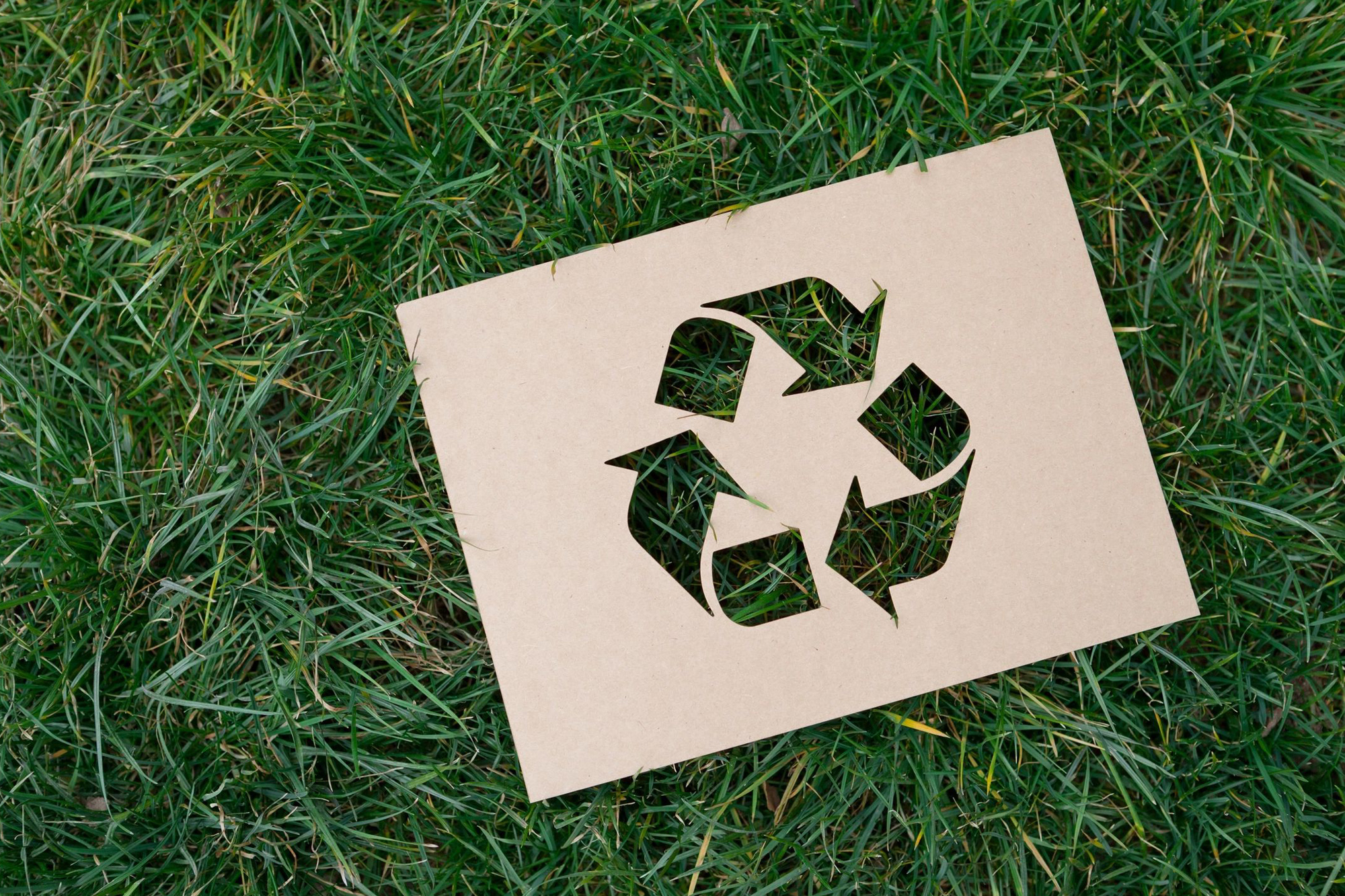
Features and Accessories for Enhanced Functionality
In this section, we’ll discuss some of the key features and accessories that can enhance the functionality of your compactor. These features can help you improve efficiency, safety, and convenience.
- Balers: Offered in vertical, horizontal, and unique configurations to suit your specific needs.
- Compactors: Choose from indoor, corral, self-contained, stationary, solar-powered, and chute-fed varieties to optimize your waste management process.
- Deodorizers: Neutralize unpleasant odors and keep your work environment fresh. Helpful in controlling odors from trash compactors, recycling bins, and composting units.
- Chute-Fed Systems: Enhance safety and efficiency with chute-fed systems for easy waste disposal.
- Cart Tippers: These are machines that assist in efficiently and safely emptying industrial carts and bins. By lifting, tilting, and emptying the carts, they reduce the physical strain on workers and minimize the risk of injuries. Cart tippers are especially useful for heavy-duty waste handling applications.
- Waste Caddy: Waste Caddy is likely a motorized unit designed to move heavy trash containers or recycling bins around a facility.
- Liquid Food Composters: These are composting systems specifically designed to break down food scraps and other liquid organic waste. Unlike traditional compost bins, liquid food composters use special microbes and aeration processes to accelerate the composting process and minimize odors.
These are just a few of the many features and accessories available from BATC Compacts to help you customize a waste management solution that perfectly fits your needs. By incorporating these features, you can streamline your waste handling process, improve efficiency, and create a cleaner, more pleasant work environment.
At BATC, we specialize in providing top-notch features to maximize the functionality of your compactors. Our expertise in this field ensures that you receive the most innovative solutions tailored to your specific needs. Whether it’s optimizing compactor efficiency or enhancing material handling capabilities, we have the expertise to deliver results that exceed expectations.
Understanding Advanced Compactor Features
In addition to the basic features mentioned above, there are a number of advanced features that you may want to consider, depending on your specific needs. These features can include:
- Automatic compaction cycle: This feature allows the compactor to automatically start and stop the compaction cycle, which can save you time and energy.
- Balers: Balers can be used to compress cardboard, plastic, and other materials into bales, which can save you money on hauling costs.
- Weighing systems: Weighing systems can help you track your waste disposal costs and identify areas where you can reduce waste.
Accessories for Efficient Material Handling
Efficient material handling is essential for maximizing the productivity of your compactor. The selection of appropriate accessories can significantly enhance material handling capabilities, streamline workflow, and minimize downtime. BATC offers a diverse range of accessories designed to optimize material handling operations:
- Cart Tippers
Cart tippers are invaluable accessories for streamlining the process of emptying waste carts into compactors. With BATC’s cart tippers, you can effortlessly lift and empty waste carts of various sizes, reducing manual handling and minimizing the risk of injury. Our cart tippers are equipped with robust mechanisms and ergonomic designs to ensure smooth and efficient operation.
Explore BATC’s range of cart tippers to find the perfect solution for your compactor setup.
- Waste Caddy
A waste caddy is an essential accessory for transporting waste materials from collection points to the compactor. BATC’s waste caddies are designed for durability and ease of use, featuring sturdy construction and ergonomic handles for effortless maneuverability. Whether you’re managing waste in a commercial facility or an industrial setting, our waste caddies provide a convenient solution for efficient material handling.
Discover BATC’s selection of waste caddies to enhance your compactor’s material handling capabilities:
- Pallet Jacks
Pallet jacks are indispensable tools for handling palletized materials and transporting them to the compactor. BATC offers a range of pallet jacks designed for heavy-duty applications, with features such as adjustable forks, ergonomic handles, and smooth-rolling wheels for enhanced maneuverability. Our pallet jacks are built to withstand the rigors of industrial environments, ensuring reliable performance and longevity.
Browse BATC’s collection of pallet jacks to streamline material handling operations in your facility.
By incorporating these accessories into your compactor setup, you can optimize material handling processes, improve workflow efficiency, and maximize the return on your investment. Trust BATC to provide high-quality accessories tailored to your specific requirements, ensuring seamless integration and superior performance for your compactor system.
Maintenance and Service Requirements
Maintaining your trash compactor is crucial for optimal performance and lifespan. Here’s a breakdown of typical maintenance and service requirements:
- Routine maintenance:
- Regularly empty the compactor to avoid overloading and potential breakdowns.
- Clean the hopper and surrounding area to prevent debris build-up and odors.
- Visually inspect the compactor for leaks, damage, or loose parts.
- Periodic maintenance:
- Schedule professional maintenance every 6-12 months for tasks like:
- Checking and replacing worn components like filters and belts.
- Lubricating moving parts.
- Inspecting hydraulic systems (for stationary compactors).
- Additional considerations:
- Refer to your compactor’s manual for specific maintenance steps and intervals.
- Invest in a service contract for comprehensive maintenance and troubleshooting.
- Schedule professional maintenance every 6-12 months for tasks like:
Budgeting for Your Compactor Investment
Investing in a compactor is a significant decision, and at BATC, we provide guidance to help you budget effectively. Rely on our expertise to assess your needs and recommend the most suitable solutions within your budget constraints. With our trustworthy advice, you can make informed decisions that align with your financial goals while maximizing the returns on your investment.
The cost of a compactor can vary significantly depending on several factors, including:
- Type: Stationary compactors are generally more expensive than self-contained compactors.
- Size and capacity: Larger compactors with higher capacities will have a higher price tag.
- Features: Advanced features like automatic bag loading or deodorizing systems add to the cost.
- Brand and model: Different brands and models can have varying price points for similar features.
Here’s a rough estimate of average costs for different types of compactors:
- Small, self-contained trash compactor: $500 – $1,500
- Large, self-contained trash compactor: $1,500 – $5,000
- Stationary trash compactor: $5,000 – $20,000+
Remember, these are just ballpark figures. It’s essential to research specific models and obtain quotes from vendors to get an accurate price for your needs.
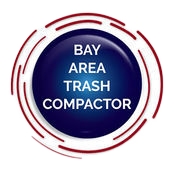

WE WANT TO HAVE A POSITIVE IMPACT ON THE PLANET
RECYCLING TECHNIQUES
Repurpose and reuse for a greener future.

HEALTH AND RECYCLING
Nurture your well-being and the planet’s health through recycling.
REDUCE YOUR CONSUMPTION
Conscious consumption for a sustainable tomorrow.
Enhance your dedication to sustainability by choosing BATC Compactors. Delve into our expertise in sustainability to uncover cutting-edge waste management solutions crafted to minimize environmental footprint. Cut down on your waste removal expenses by investing in a compactor.
Reach out to us for a complimentary Waste Reduction Cost Savings Survey.
Case Studies and User Experiences
Discover real-world insights for successful compactor implementations. From testimonials highlighting the benefits of our solutions to detailed case studies showcasing notable achievements, we provide a wealth of information to inform your decision-making process. Trust in BATC to deliver authentic narratives that illustrate the tangible impact of our compaction solutions.
Real-World Examples of Successful Compactor Implementations
Here are a few examples of successful trash compactor implementations from our clients at BATC:
- Educational institutions: UC Berkeley International House reduced noise, wear and tear, and pollution by centralizing their waste/recycling/compost area.
- Restaurants: Chick-fil-A Palmdale reduced overflowing trash and the need for multiple pickups by implementing a compactor.
- Hospitality: The Four Seasons Resort and Residences implemented a compactor to manage waste and recyclables.
- Industrial Manufacturing:
- PepsiCo-Hayward: Reduced emissions with balers for cardboard & plastic.
- Penske Logistics: Enclosed compactors eliminate overflows & odors.
- Shaklee Corporation: Balers eliminate manual box flattening.
- Shari’s Berries: Stationary compactor avoids open-debris boxes.
- Build-Tek: Balers save time & space in the warehouse.
- Wineries: Streamline Waste with Smart Solutions
- Reduce landfill waste & costs (35-75%) with our compacting, baling, & composting systems. Manage bottles, boxes, & organics for a cleaner winery & environment.
Learning from Challenges: Common Pitfalls to Avoid
Navigating the challenges of compactor implementation requires foresight and expertise. At BATC, we prioritize trustworthiness in highlighting common pitfalls to avoid. Drawing on our extensive experience in the industry, we shed light on potential challenges that may arise during the implementation process. From inadequate training protocols to suboptimal equipment configurations, our insights empower you to proactively address issues and ensure the success of your compactor initiatives.
Here are some of the common pitfalls:
- Purchasing the wrong size compactor: Choosing a compactor too small for your waste volume can lead to frequent emptying and potential breakdowns.
- Neglecting maintenance: Skipping regular maintenance can lead to expensive repairs and shorten the compactor’s lifespan.
- Improper user behavior: Overloading the compactor, putting in inappropriate materials, or not following safety protocols can damage the equipment and pose safety hazards.
By carefully considering your needs, researching various options, and following proper maintenance practices, you can choose the right compactor for your needs and ensure its long-term, efficient operation.
Trust in BATC to guide you through potential pitfalls with honesty and integrity.
Compactor FAQs
Address common questions and concerns related to compactor selection, operation, and maintenance to provide comprehensive information to potential buyers and users.
FAQs
Q: What is a compactor and what is it used for?
A: A compactor is a machine that is used to compact soil, concrete, or asphalt. Compaction is the process of pressing down on material to remove air spaces and increase density. This can be done by applying force, such as with a vibrating plate, or by using weight, such as with a roller compactor. Compacting material is important for a variety of reasons, including:
- To improve the strength and durability of the material
- To prevent the material from cracking or settling
- To make the material more water-resistant
- To prepare the material for paving or other applications
Q: What are the different types of compactors?
A: There are many different types of compactors, each with its own strengths and weaknesses. Some of the most common types of compactors include:
- Plate compactors: These are small, lightweight compactors that are ideal for compacting small areas of soil, concrete, or asphalt.
- Drum compactors: These are larger, heavier compactors that are designed for compacting large areas of soil or asphalt.
- Trench compactors: These are narrow compactors that are specifically designed for compacting trenches.
- Ride-on compactors: These are large, self-propelled compactors that are ideal for compacting very large areas.
Q: What factors should I consider when choosing a compactor?
A: There are a number of factors to consider when choosing a compactor, including:
- The type of material you are compacting: Different types of compactors are better suited for different types of material. For example, plate compactors are ideal for compacting soil and concrete, while drum compactors are better for compacting asphalt.
- The size of the area you are compacting: The size of the area you are compacting will determine the size of the compactor you need. For small areas, a plate compactor may be sufficient, while for large areas, a drum compactor or ride-on compactor may be necessary.
- The budget you have: Compactors can range in price from a few hundred dollars to tens of thousands of dollars. It is important to set a budget before you start shopping for a compactor.
- The features you need: Some compactors come with additional features, such as a water spray system or a remote control. These features can be helpful, but they will also add to the cost of the compactor.
Q: How can I maintain my compactor?
A: Proper maintenance is essential for extending the life of your compactor. Some of the most important things to do to maintain your compactor include:
- Keep the compactor clean: Regularly clean the compactor of dirt, debris, and other contaminants.
- Lubricate the compactor: Regularly lubricate the moving parts of the compactor.
- Inspect the compactor for damage: Regularly inspect the compactor for signs of damage, such as cracks, leaks, or loose bolts.
- Have the compactor serviced by a qualified technician: Have the compactor serviced by a qualified technician at least once a year.
Q: How much does a compactor cost?
The cost of a compactor can vary significantly depending on the size, type, and features of the machine.
Ready to make an informed decision on your compactor? Contact us today for personalized guidance and expert assistance. Your compaction success story starts here!
Join Us on the Journey to a Greener Future! Take Action Now for a Sustainable Tomorrow.
Call Us for Comprehensive Compactor Solutions Today!
Contents
- Wondering how to choose the right compactor?
- Understanding Your Compaction Needs
- Considerations for Compactor Size and Capacity
- Features and Accessories for Enhanced Functionality
- Maintenance and Service Requirements
- Budgeting for Your Compactor Investment
- WE WANT TO HAVE A POSITIVE IMPACT ON THE PLANET
- Case Studies and User Experiences
- Compactor FAQs